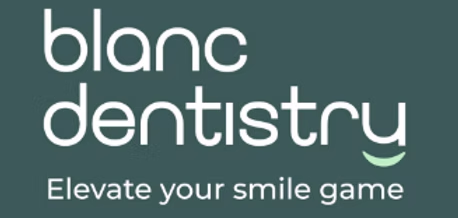Jaw Pain, TMJ & TMD in Pune — Causes, Symptoms, and Effective Treatments
Jaw pain can be more than a nuisance — it can make eating, speaking and sleeping difficult. When the source is the temporomandibular joint (TMJ) or the muscles that control it, the problem is often grouped under temporomandibular disorders (TMD or TMJD). This article explains what causes TMJ/TMD, how to recognise it, how it’s diagnosed, and which effective treatments are available — including what options Pune residents can reasonably expect locally.
What is the TMJ / TMD?
The temporomandibular joint (TMJ) is the hinge-like joint that connects your lower jaw (mandible) to your skull just in front of each ear. “TMD” (temporomandibular disorders) is an umbrella term for the range of problems that can affect that joint, the disc inside it, and the jaw muscles. TMDs include muscle-related pain, joint-structure problems, and degenerative joint conditions.
Common causes
TMD doesn’t have a single cause — it’s usually multi-factorial. Common contributing factors are:
- Muscle tension from clenching or grinding teeth (bruxism), often linked to stress or disturbed sleep.
- Trauma to the jaw or head (falls, impacts, dental procedures).
- Arthritis (osteoarthritis or inflammatory arthritis) affecting the joint surfaces.
- Disc displacement or structural problems of the joint.
- Bite problems or poorly fitting dental restorations that change the way the teeth meet.
Many patients have a mix of these triggers rather than one clear culprit.
Typical symptoms to watch for
Symptoms can vary from mild and intermittent to severe and persistent. Key red flags include:
- Pain or tenderness in the jaw, face, temple or in front of the ear.
- Clicking, popping or grinding noises when opening or closing the mouth.
- Difficulty opening the mouth fully or a jaw that “locks” open or shut.
- Pain that worsens with chewing, yawning or talking, and headaches or neck pain that accompany jaw symptoms.
- Ear symptoms such as fullness, ringing (tinnitus) or earache without ear infection.
Most TMJ problems are painful but not life-threatening; many improve with conservative care.
How TMD is diagnosed
Diagnosis starts with a careful history and physical exam: your clinician will ask when the pain began, what makes it better/worse, and check jaw opening, joint noises, and muscle tenderness. Dentists or oral & maxillofacial surgeons may use imaging (panoramic X-ray, cone-beam CT, or MRI) if structural problems or disc displacement are suspected. Simple dental checks help rule out tooth pain, infections or impacted wisdom teeth as the source. A team approach — involving dentists, surgeons, physiotherapists or pain specialists — is often the most effective.
Evidence-based treatment options
Treatment is guided by the severity and cause of symptoms. Most care is conservative and reversible:
- Self-care and lifestyle changes
- 1: Soft diet (avoid hard/chewy foods), jaw rest (avoid wide yawning/chewing gum), and stress reduction.
- 2: Home exercises and gentle jaw stretching can improve mobility and reduce pain.
These first-line measures often help and can be done while other evaluations continue.
- Physical therapy and oral appliances
Physiotherapy targeted at jaw, neck and posture can decrease pain and restore function.
Stabilisation splints or night guards can reduce damage from grinding and ease muscle tension. Evidence supports these as helpful for many patients.
- Medication and minimally invasive interventions
Short courses of NSAIDs (anti-inflammatories), muscle relaxants, or low-dose analgesics may be used for flares.
For persistent or severe cases, clinicians may consider corticosteroid injections, arthrocentesis (joint irrigation), or botulinum toxin in selected muscle-pain situations. These are typically done by specialists.
- When surgery is considered
Surgery is a last resort when conservative and minimally invasive options fail and structural damage is confirmed (e.g., severe degenerative joint disease or irreversible disc problems). Options range from arthroscopy to open joint surgery and, rarely, joint replacement. Surgical decisions should be made with experienced oral & maxillofacial surgeons.
Practical steps for someone in Pune
If you live in Pune and have jaw pain that’s not improving with basic self-care after a few weeks, or if you have severe pain, locking, or rapidly worsening symptoms, seek a specialist evaluation. In Pune you can find multidisciplinary care through dental clinics with TMD expertise and oral & maxillofacial surgery departments — many larger dental practices and hospitals advertise TMJ/TMD services and have clinicians experienced in non-surgical and surgical management. Start with a general dentist or an orofacial pain/TMD specialist; they can coordinate physiotherapy, sleep dentistry (if bruxism is involved), ENT assessment (if ear symptoms are prominent), or referral to an oral & maxillofacial surgeon when needed.
Tips to reduce risk and manage symptoms daily
- Avoid gum, hard/chewy foods, and habits like nail-biting.
- Practice jaw relaxation: keep the tongue on the roof of the mouth and lips together with teeth slightly apart when resting.
- Use heat packs for muscle tightness or cold packs for acute pain/swelling (short intervals).
- Manage stress with mindfulness, sleep hygiene and, if necessary, professional help — stress reduction often cuts bruxism and muscle tension.
- If you grind your teeth at night, ask your dentist about a night guard.
When to seek urgent care
Seek prompt care if you have:
- Severe unrelenting pain that doesn’t respond to simple analgesics,
- Sudden inability to open or close your mouth (locked jaw),
- Signs of infection (fever, spreading facial swelling), or
- Significant trauma to the jaw.
These situations require immediate assessment.
Conclusion
TMJ problems and TMD are common sources of jaw pain but are usually manageable with conservative care: patient education, self-care, physiotherapy, oral appliances and targeted medical treatments. A team approach yields the best outcomes — starting with a dentist or TMD specialist and involving physiotherapists, pain specialists or oral & maxillofacial surgeons as needed. In Pune, several clinics and hospitals provide TMD-focused care, so residents have access to both conservative and specialist options. If jaw pain is persistent, worsening, or accompanied by locking or severe symptoms, don’t delay — early assessment and a tailored treatment plan can prevent chronic pain and restore normal function.
Relieve jaw pain and restore comfort—consult Blanc Dentistry in Pune for expert TMJ & TMD care today.


